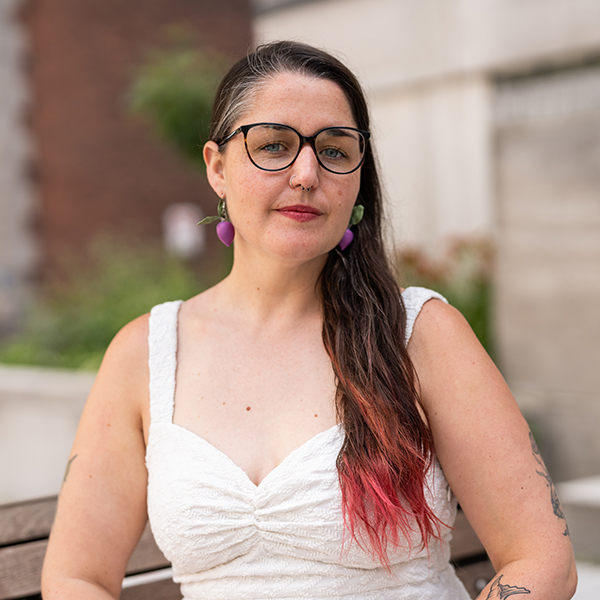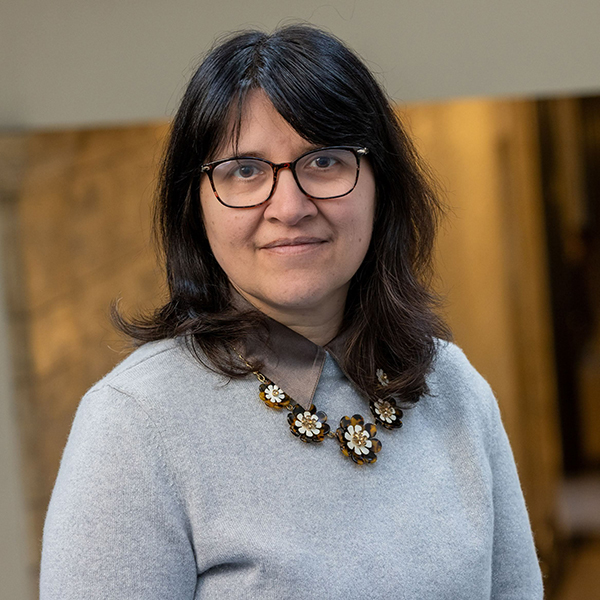Since Wendell Nii Laryea Adjetey joined McGill’s Department of History and Classical Studies – a mere seven months before a new pandemic upended everyone’s lives – he’s been honoured twice for his teaching.
The first accolade came in 2022 from the Faculty of Arts. Then, at convocation last spring, Adjetey received the Principal’s Prize for Excellence in Teaching in the assistant professor category.
“I didn’t anticipate anything like that at all when I arrived here in August 2019. I was just trying to do my best as an assistant professor, treading water, Covid, teaching full-time from home, becoming a father,” Adjetey says, rhyming off some of the challenges from that period.
The recognition is especially heartening, he says, “because one of the things that I admire most are people who teach well, whether they’re formal teachers or…individuals who know how to coach and mentor, inspire something in others.”
His own educational path wasn’t an easy one. Born in Ghana, Adjetey grew up in suburban Toronto where he was placed in an English-as-a-second-language stream in primary school with other students from disadvantaged backgrounds.
“I was in usually segregated sort of classes with mostly Black or brown children,” he says, noting their behaviour mirrored some of the frustrations they felt.
Fortunately, he had chance encounters with people who proved to be important mentors – as well as supportive parents at home. “They had expectations that their sacrifices working as janitors, as custodians, would mean something in terms of how I then perceived self-actualization,” says Adjetey, a William Dawson Scholar at McGill who specializes in post-Reconstruction U.S. and African Diaspora history.
In his late teens in 2005 – “the year of the gun” as Toronto media called it because of the number of gun and gang-related homicides – Adjetey founded an after-school youth mentorship program at his Mississauga housing complex. The YMCA of Greater Toronto awarded him its peace medallion for the initiative.
After completing his master’s degree at the University of Toronto, Adjetey worked as a case worker in a youth gang crime prevention program and went on to Yale for his PhD. His dissertation won multiple honours, including a prize at Yale awarded for “outstanding work in the field of American History”. Postdoctoral research at Harvard followed.
For his first book, Cross-Border Cosmopolitans: The Making of a Pan-African North America, Adjetey petitioned the U.S. and Canadian governments to declassify intelligence documents from the 1960s and ʾ70s.
“Black males, for example, are the most incarcerated demographic in the entire world. Black men in the United States are the most incarcerated. Why was that?”
Associate professor of history Wendell Nii Laryea Adjetey
His lecture at Homecoming Celebration Weekend will explore the “persistent, yet poorly understood, phenomenon of counterinsurgency that the United States-and Canadian-intelligence and national security apparatus waged on Black Power and revolutionary Pan-Africanism in the post-World War II period.”
The McGill News spoke with Professor Adjetey in advance of his talk.
You’ve achieved academic success despite facing hurdles as a child when you were “usually written off in the first couple of weeks of class,” as you once told The Harvard Gazette. What obstacles did you have to overcome in your educational journey?
The most constant obstacle from childhood to high school was that most of my teachers did not think much of my intellectual prospects.
In fifth grade I had an amazing teacher who changed my entire outlook on school, on myself, on learning – Mrs. Perez, who remains to this day a beloved elder, mentor, and now friend. She showed me the power of human beings, especially when they’re in a guardian role, over children regardless of race, or whatever. The power when those adults show vulnerable people that they care, that they believe in them – and this is what Mrs. Perez showed for me.
In high school I had a guidance counselor, the late Peter Hinchcliffe. He was the second educator whom I discerned without a doubt wanted to see me thrive. He knew I could thrive – that I just needed the right types of supports.
Does your experience and educational journey influence how you teach students today?
Very much. One of the biggest takeaways for me – especially given that I teach very sensitive, difficult subjects sometimes for me to lecture on – is to show my students that I care about them as human beings. I care about their self-actualization. And that through the material, through this very difficult history, that they can discern sort of an affinity between themselves and historical actors, that they can discern something powerful about the human experience regardless of race, gender, class, religion, etc.
It’s that sense of compassion and sincerity that I got from Mr. Hinchcliffe, Mrs. Perez, and other elders in my life that made a world of difference in terms of how I try to model effective teaching, good teaching.
What led you to become a historian?
A couple of factors. I gained an affinity and appreciation for history because my dad is such a good storyteller. And then my experience trying to uncover why of all the various groups in Canadian society, and certainly in the United States, were Black people, especially in post-industrial environments, dealing with forms of social disorganization – mass incarceration that literally made them an anomaly in North America but also around the world.
Black males, for example, are the most incarcerated demographic in the entire world. Black men in the United States are the most incarcerated. Why was that? These types of questions pushed me to history and to understand origins and antecedents and change over time.
You worked in a youth gang prevention program in Toronto’s Jane and Finch neighborhood for three years. Did that experience inspire or shape your interest in academic research?
1000 per cent.
As teenage Black boys we used to play basketball in tournaments all over the city. And there was a time when it was a beautiful thing. It was remarkable seeing all types of neighborhoods coming together. But in, like, a drop of a hat around 2003, 2004, our world was caving in with all types of gun-related homicides, turf wars, etc.
After my master’s, the community invited me to help out with some of these issues, mostly affecting young Black men in different inner-city communities in Toronto. I realized that the questions I had were in part sociological but were mostly historical because I couldn’t understand why this demographic – Black boys and young men, low income, often in particular neighborhoods, why were we dealing with these very existential threats to the point where the society, police, the various institutions expected our failure, expected that we would be more or less devouring one another.
I was speaking with elders, with individuals who had spent time in correctional facilities. I was reaching out to academics in the United States, Black academics in particular, who were conducting ethnography in inner city environments, like Philly and Baltimore. I realized that I needed to return to school, I needed to pursue my doctorate to get a better sense of why people of African descent, why Black people in the United States and Canada and the Caribbean, why was this such an intractable issue.
Why did you choose to focus on the post-Reconstruction period of the United States?
It’s just so fascinating. Black people are just a few years out of formal slavery, this wretched enterprise that generated so much surplus, profit and capital that would put the United States on a trajectory to become what it is today – a global superpower. But even in that moment, they’ve illustrated that they can rise to high levels of government. They’re organizing their votes, they’re politically engaged.
These are people who walked off a plantation, they hadn’t dealt with four centuries of the trauma that is now ingrained in their sinews of who they are, but they’re building towns, they’re building schools, they’re building institutions. They’re resisting all forms of anti-Black terrorism.
And they’re showing a level of grit that I thought was just so remarkable. Understanding that Reconstruction, post-Reconstruction period into the 20th century allowed me to write my first book and certainly get a better sense of U.S. and African Diaspora history.


